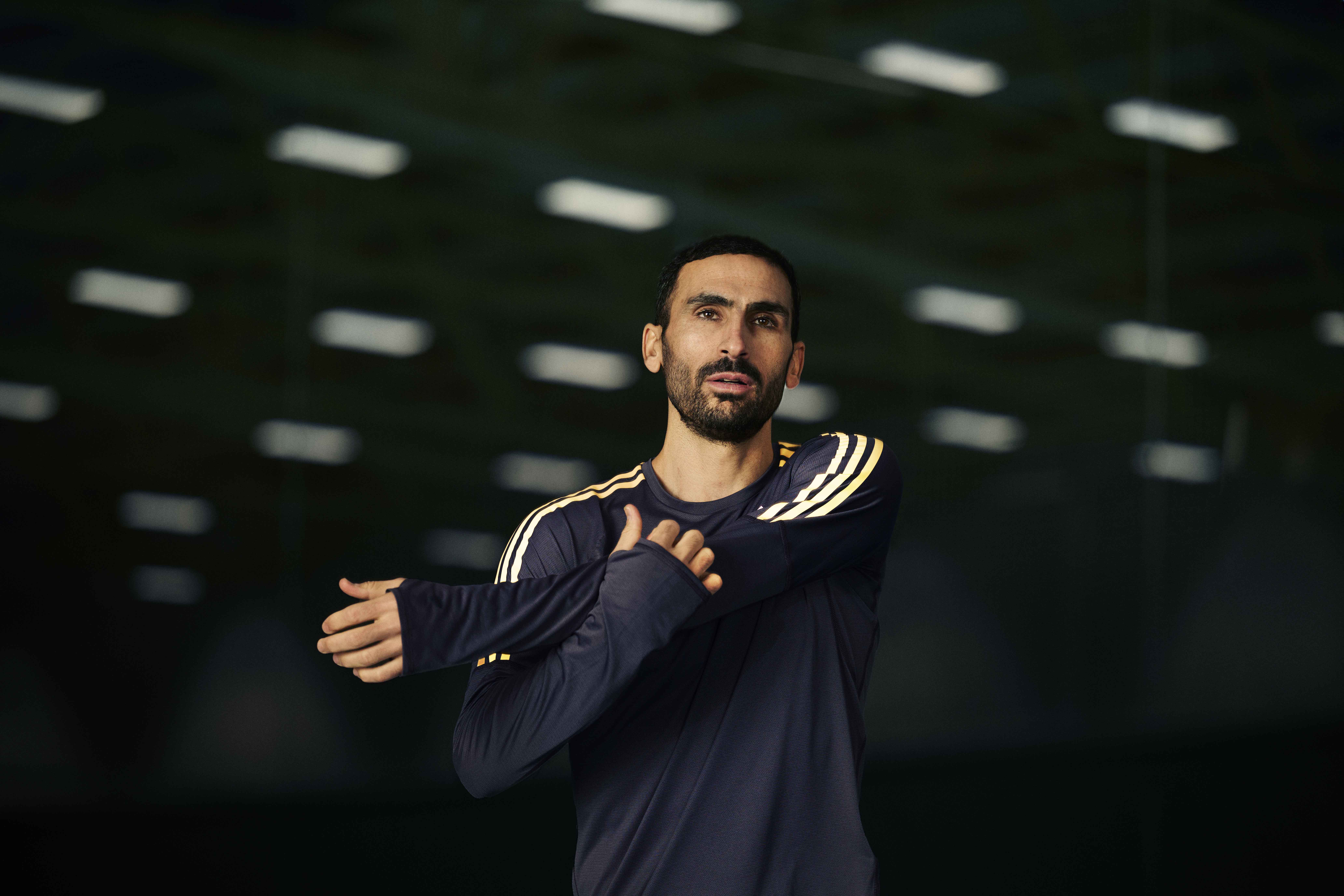BREAKING THE FAST FEELS LIKE STANDING ON THE PODIUM
As a professional long-distance runner and Muslim, Mohammadreza Abootorabi has found a way to celebrate Ramadan that works for him as an elite athlete. "The exact approach during Ramadan is individual and depends on the sport and athlete. You need to consider your entire life," he says.
Each day starts with a run. Followed by school where Mohammadreza Abootorabi studies to become a sports consultant. After school? Another training session. Then, he often leads a personal training session with a client. Long days that require lots of energy. Is it compatible with fasting?
"First and foremost, it's important to remember that Ramadan has a higher purpose. It's not just about fasting. And everyone has their own, individual conditions," he says.
For Mohammadreza Abootorabi, this means that Ramadan often falls during an intense training or competition period. And he is skeptical about fasting if one does not believe it will work: "I am interested in the mental aspect and psychology. And I believe in mental strength. The body follows what you believe and understand. And if I, as someone who is committed to elite performance and runs 90–120 miles a week, don't believe it will work, then it won't."

Throughout his long career, Mohammadreza has therefore experimented and found his own way. What works best for him is to celebrate Ramadan all year round, when it fits into his training schedule. And during Ramadan, he fasts on the calmer days. "All sports have their challenges. I find moments where I can manage to fast even though I train twice a day because my body is so well-trained. It's not easy being thirsty and it's not easy being hungry, but if I take care of my body and recovery, it works. Then I get mental strength as a bonus."
But Mohammadreza wants us to focus more on the purpose of Ramadan, rather than the fasting itself.
"The message is more important than the actual setup. What I mean and wish is for every athlete and individual to reflect and think about the higher message. How exactly one should practice during Ramadan is individual and you need to consider your entire life.
"In mental training and psychology, there's a lot of talk about planning. Sometimes when it's time to go to training, you don't feel like it, but you go anyway because you have the discipline. How can we use Ramadan to practice and develop our discipline? It's exactly the same mechanisms. Ramadan is a period where you establish a behavior, and the feeling you get from breaking the fast is the same as when you stand on the podium."

The star runner’s advice – 3 ways to approach exercising and Ramadan.
1. "Ramadan is individual, just like exercising. You must consider your entire life and your circumstances. How much do you work or study? What is your fitness level? What does your sport look like?"
2. "Focus on the higher message. Ramadan is a time to pause and focus on what’s most important, and to think about those who are less fortunate than you."
3. “If you do not accomplish what you have set out to do, try again; that’s also practice. You shouldn’t give up. It’s not about being a bad person who should be punished. We, as humans, know that we’re not perfect. We make mistakes, but we should learn from our mistakes and not repeat them. That's also one of the messages of Ramadan."
